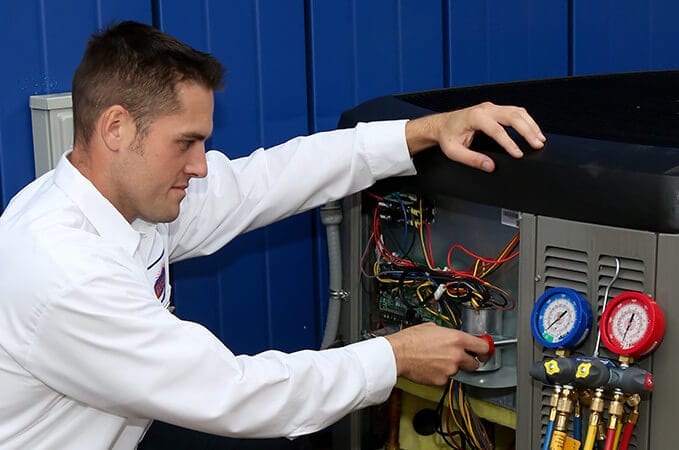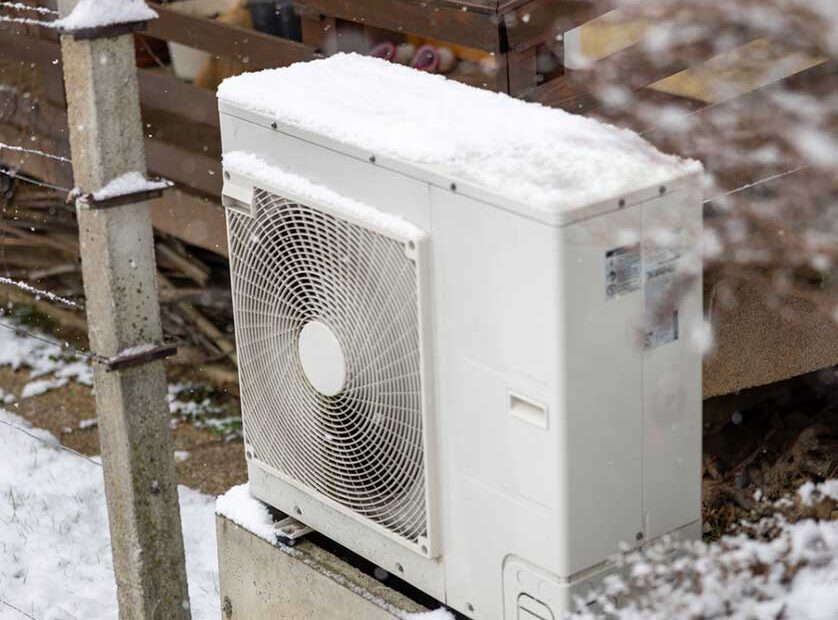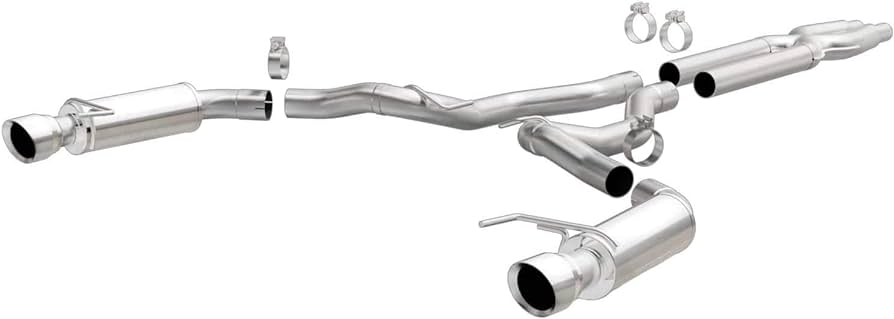Seasonal tuning maintenance from winter to summer involves essential steps to prepare your equipment for the changing weather conditions and ensure optimal performance.
Understanding The Impact Of Seasonal Changes On Hvac Systems
Understanding the impact of seasonal changes on HVAC systems is essential for efficient performance. From winter to summer, regular tuning maintenance ensures optimal functionality and comfort throughout the year.
Understanding the Impact of Seasonal Changes on HVAC SystemsSeasonal changes play a crucial role in the performance and efficiency of HVAC (Heating, Ventilation, and Air Conditioning) systems. As the weather shifts from winter to summer, it brings about various challenges and adjustments that can impact the overall operation of these systems. By understanding these impacts, homeowners can take proactive measures to maintain their HVAC systems effectively. In this article, we will delve into the importance of seasonal maintenance for HVAC systems, how weather conditions affect their performance, common issues faced during winter and summer seasons, and the benefits of proactive seasonal tuning maintenance.
Importance Of Seasonal Maintenance For Hvac Systems
Regular seasonal maintenance is vital for ensuring the optimal performance and longevity of HVAC systems. Neglecting maintenance can lead to reduced efficiency, higher energy bills, and increased chances of system breakdown. The transition from winter to summer requires specific checks and adjustments to keep the HVAC system running smoothly. Some essential maintenance tasks that should be carried out during this period include:
- Cleaning or replacing air filters to improve indoor air quality and system efficiency.
- Checking and calibrating thermostat settings to accommodate temperature changes.
- Inspecting electrical components and connections for any signs of wear or damage.
- Checking and cleaning the condenser unit and evaporator coils to optimize cooling performance.
- Lubricating moving parts to minimize friction and reduce energy consumption.
- Verifying refrigerant levels and adjusting them if necessary.
- Inspecting and cleaning air ducts to remove dust, debris, and potential blockages.
How Weather Conditions Affect Hvac Performance
Weather conditions have a significant impact on the performance and efficiency of HVAC systems. During the winter season, cold temperatures and increased humidity can cause various issues, including:
- Frozen evaporator coils, which restrict airflow and hinder the cooling process.
- Pressure imbalances due to closed windows and doors, causing uneven heating.
- Increased strain on the system due to longer run times to maintain consistent indoor temperatures.
Conversely, in summer, high temperatures and excess humidity can result in the following challenges for HVAC systems:
- Overworked condenser units due to prolonged operation to cool the indoor spaces.
- Inadequate cooling performance caused by clogged air filters or dirty condenser coils.
- Imbalanced humidity levels, leading to discomfort and potential mold growth.
Common Issues Faced During Winter And Summer Seasons
Both winter and summer seasons pose specific challenges to HVAC systems, resulting in common issues homeowners may encounter:
- Inefficient heating or cooling due to clogged filters or inadequate airflow.
- Thermostat malfunctions or incorrect settings, leading to temperature inconsistencies.
- Icing on the evaporator coils or condenser unit, hindering the proper functioning of the system.
- Faulty electrical connections or damaged components, causing system breakdowns.
- Uneven distribution of heated or cooled air, leading to discomfort in certain areas of the house.
The Benefits Of Proactive Seasonal Tuning Maintenance
Engaging in proactive seasonal tuning maintenance brings several benefits that homeowners should prioritize. Regular maintenance:
- Enhances the system’s energy efficiency, resulting in lower utility bills.
- Extends the lifespan of the HVAC system, reducing the need for costly repairs or replacements.
- Improves indoor air quality by removing dust, allergens, and pollutants from the system.
- Ensures consistent and comfortable temperatures throughout the home.
- Reduces the likelihood of unexpected breakdowns and emergency repairs.
By prioritizing seasonal maintenance and staying proactive with tune-ups, homeowners can keep their HVAC systems running optimally all year round, regardless of the challenges posed by changing seasons.
Winter Maintenance Tips For Optimal Hvac Performance
When the winter chill sets in, it’s crucial to ensure your HVAC system is in top-notch condition to keep your home warm and comfortable. By following these winter maintenance tips, you can enhance the performance and efficiency of your HVAC system, saving you money on energy bills and avoiding costly repairs down the road.
Importance Of Scheduling A Professional Hvac Inspection
Regular HVAC inspections are essential, especially before the winter season kicks in. By scheduling a professional inspection, you can identify any potential issues that can hamper the system’s performance. HVAC technicians are trained to conduct a thorough assessment of your system, checking for leaks, faulty wiring, or worn-out components. They will tune and optimize your system to ensure it runs efficiently throughout the winter.
Checking And Replacing Air Filters
Air filters play a crucial role in maintaining proper indoor air quality and system performance. During the winter months, it’s important to check and replace your air filters regularly. Clogged filters restrict airflow, forcing your system to work harder and less efficiently. By replacing them every one to three months, you can ensure clean and unrestricted airflow, preventing dust buildup and improving indoor air quality.
Ensuring Proper Insulation And Weather Sealing
Inadequate insulation and poor weather sealing can significantly impact your HVAC system’s efficiency. Leaks and drafts can cause temperature fluctuations, leading to an overworked system and higher energy bills. It’s crucial to inspect windows, doors, and any other potential areas for air leaks, ensuring they are properly sealed and insulated. Additionally, upgrading to energy-efficient windows and adding insulation to your attic and walls can provide substantial long-term benefits, reducing heat loss and enhancing your system’s performance.
Addressing Issues With Thermostat Settings And Programming
Your thermostat plays a central role in regulating your home’s temperature. To optimize your HVAC system’s performance during winter, make sure your thermostat settings are accurate and programmed appropriately. Consider setting a lower temperature when you’re away from home to save energy, and program it to gradually increase temperature before you return. Additionally, if you have an older thermostat, it might be worth upgrading to a programmable or smart thermostat, which can provide greater control and energy-saving features.
Importance Of Cleaning And Clearing Outdoor Hvac Components
Outdoor HVAC components are exposed to the elements, making them susceptible to debris accumulation and possible damage during the winter months. It’s vital to regularly clean and clear these components, such as the condenser unit and coils, from fallen leaves, dirt, and debris. A buildup of debris can hinder airflow and affect the system’s overall performance. Ensure that the area around the outdoor unit is clear and unrestricted to maximize airflow and prevent any potential obstructions.
Summer Maintenance Tips To Maximize Efficiency
Maximize your home’s efficiency this summer with these seasonal tuning maintenance tips, ensuring optimal performance and energy savings. Transitioning from winter to summer requires careful attention to HVAC systems, air filters, insulation, and thermostat settings.
In the scorching heat of summer, your HVAC system works hard to keep your home cool and comfortable. To ensure optimal performance and energy efficiency, it’s essential to focus on specific maintenance tasks. By following these summer maintenance tips, you can keep your HVAC system running smoothly and prevent any potential issues that may arise during the hot season.
Checking And Cleaning Air Conditioning Condenser Coils
To guarantee the efficient operation of your air conditioning system, it’s crucial to regularly check and clean the condenser coils. Over time, these coils accumulate dirt, dust, and debris, hindering the heat transfer process. This build-up restricts airflow and reduces overall cooling capacity. Cleaning the condenser coils not only improves system performance but also helps save on energy consumption.
Addressing Refrigerant Levels And Leaks
Another critical aspect of summer HVAC maintenance is checking the refrigerant levels and addressing any leaks. Inadequate refrigerant levels can cause your air conditioner to work harder to achieve the desired cooling. This not only increases energy usage but also puts undue strain on the system, potentially leading to breakdowns. Regularly checking for leaks and ensuring proper refrigerant levels will help maintain optimal cooling efficiency.
Importance Of Cleaning And Clearing Outdoor Hvac Components
The outdoor components of your HVAC system, such as the fan, compressor, and condenser unit, are exposed to various elements throughout the year, including debris, leaves, and grass clippings. These obstructions can hinder proper airflow, leading to reduced performance and system inefficiency. Cleaning and clearing these components regularly helps promote better airflow, ensuring efficient cooling during the summer months.
Optimizing Thermostat Settings For Energy Efficiency
One of the simplest yet effective ways to maximize energy efficiency during the summer is to optimize your thermostat settings. Increasing the temperature by a few degrees when you’re away or asleep can significantly reduce energy consumption without compromising your comfort. Programmable thermostats allow you to automate temperature adjustments based on your schedule, ensuring energy savings and a cool indoor environment when you need it the most.
Checking And Improving Ductwork For Better Airflow
The efficiency of your HVAC system relies on the proper airflow throughout your home. Checking and improving ductwork is imperative to maintain optimal cooling efficiency. Inspect your ducts for leaks, gaps, or blockages that can impede airflow and compromise energy efficiency. Sealing any leaks, insulating ducts, and ensuring unrestricted airflow enables your system to work efficiently and distribute cool air evenly throughout your living space.
Seasonal Tuning Maintenance Checklist: Tasks For Winter And Summer
When it comes to keeping your HVAC system in optimal condition, seasonal tuning maintenance is key. Transitioning from winter to summer requires a checklist of tasks to ensure everything is working efficiently. This article will guide you through the essential maintenance steps to take for the changing seasons.
Inspecting And Cleaning Hvac Components
One crucial aspect of seasonal tuning maintenance is inspecting and cleaning your HVAC components. This step helps enhance the system’s functionality, prevent breakdowns, and improve indoor air quality. Here’s a handy checklist:
- Check the condenser unit: Inspect the outdoor condenser unit for any obstruction or debris. Remove leaves, dirt, and any other unwanted materials to maintain a clear airflow.
- Inspect and clean the evaporator coils: Over time, the evaporator coils can accumulate dust and dirt, hindering their performance. Regularly clean them to ensure proper cooling and energy efficiency.
- Clean or replace air vents: Dust and debris can accumulate in your air vents, leading to reduced airflow and poor indoor air quality. Clean or replace the vents to promote healthy air circulation.
Testing And Adjusting Thermostat Settings
The thermostat plays a vital role in maintaining your desired indoor temperature. To ensure optimal comfort and energy efficiency, follow these steps when transitioning from winter to summer:
- Test thermostat functionality: Check if your thermostat is properly working by setting it to different temperatures and ensuring your HVAC system responds accordingly.
- Adjust temperature settings for the season: Set your thermostat to the ideal temperature range for summer comfort. A recommended range is between 74-78°F (23-26°C) for optimal energy savings.
- Program a schedule: If you have a programmable thermostat, customize a schedule that aligns with your daily routine, allowing for automatic temperature adjustments throughout the day.
Checking And Replacing Air Filters
Air filters help trap dust, bacteria, pollen, and other airborne particles, improving indoor air quality and preventing HVAC system issues. Here’s what you need to do:
- Inspect air filters: Check your air filters every month to assess their condition. If they are visibly dirty or clogged, it’s time for a replacement.
- Replace filters regularly: Replace your air filters every 1-3 months, depending on usage and filter type. This ensures proper system airflow and prolongs the lifespan of your HVAC equipment.
Assessing And Improving Insulation
A well-insulated home not only provides better energy efficiency but also enhances overall comfort. Take the following steps to assess your insulation needs:
- Inspect insulation: Check windows, doors, and walls for any signs of air leaks or poor insulation. Look for drafts, uneven temperature distribution, or peeling paint.
- Seal air leaks: Use weatherstripping or caulking to seal any gaps or cracks around windows and doors. This prevents cold air from entering in the summer.
- Add insulation if needed: If your home lacks sufficient insulation, consider adding more to achieve optimal thermal performance. This helps maintain a comfortable indoor temperature all year round.
Addressing Airflow And Ventilation Issues
Proper airflow and ventilation are crucial for maintaining a healthy and comfortable indoor environment. Follow these steps to ensure your HVAC system circulates air effectively:
- Clean or clear air vents: Remove dust, obstructions, or any objects blocking the air vents to ensure unobstructed airflow.
- Check ductwork for leaks: Inspect your ductwork for any air leaks and seal them with appropriate duct tape or mastic sealant. Leaks can lead to inefficient cooling and increased energy consumption.
- Consider HVAC system maintenance: If you notice persistent airflow or ventilation issues, it’s advisable to schedule professional HVAC maintenance to address underlying problems.
By following this seasonal tuning maintenance checklist, you can keep your HVAC system running smoothly, improve energy efficiency, and ensure a comfortable living environment throughout the year.
Long-term Benefits Of Seasonal Tuning Maintenance
Regular seasonal tuning maintenance for your HVAC systems offers several long-term benefits that can enhance your overall comfort, reduce energy costs, and extend the lifespan of your equipment. By scheduling a professional tune-up from winter to summer, you can ensure that your heating and cooling systems are operating at their optimal performance levels. Let’s explore some of the key benefits of seasonal tuning maintenance and how it can contribute to a more efficient and eco-friendly home environment.
Enhanced Energy Efficiency And Reduced Utility Bills
A properly tuned HVAC system can greatly enhance energy efficiency, resulting in reduced utility bills. During a seasonal tune-up, HVAC technicians will thoroughly inspect and clean all components of your system, including filters, coils, and ductwork. This cleaning and maintenance process helps remove any obstructions or debris that can hinder the system’s performance and restrict the airflow. As a result, your HVAC system can operate more efficiently, requiring less energy to maintain a comfortable indoor temperature. With enhanced energy efficiency, you can enjoy savings on your monthly utility bills, allowing you to allocate your hard-earned money to other areas of your budget.
Improved Indoor Air Quality And Comfort
Another valuable benefit of seasonal tuning maintenance is improved indoor air quality and comfort. As part of the tune-up process, technicians will inspect and clean the air filters, removing any accumulated dust, dirt, or pollutants. This helps ensure that the air circulating throughout your home is clean and free from allergens or contaminants, promoting a healthier living environment. Additionally, a well-tuned HVAC system can provide consistent and even distribution of cool or warm air, eliminating hot and cold spots in your home. This improved comfort level allows you to relax and enjoy a more pleasant indoor climate, no matter the season.
Prolonged Lifespan Of Hvac Systems
Regular seasonal tuning maintenance can help extend the lifespan of your HVAC systems. During a tune-up, technicians will inspect all the components of your heating and cooling systems, checking for any signs of wear or damage. By identifying and addressing any potential issues early on, preventative maintenance can prevent major breakdowns and costly repairs down the line. Additionally, proper lubrication and cleaning of moving parts help minimize friction and wear, reducing the strain on your system. With a longer lifespan for your HVAC equipment, you can avoid premature replacements, saving you money in the long run.
Prevention Of Costly Breakdowns And Repairs
One of the most significant advantages of seasonal tuning maintenance is the prevention of costly breakdowns and repairs. Regular inspections and maintenance can detect minor issues before they escalate into major problems. Technicians can identify and fix potential issues such as loose electrical connections, refrigerant leaks, or faulty components, preventing unexpected failures and ensuring your system operates reliably throughout the year. By investing in preventative maintenance, you can avoid the inconvenience and expense of emergency repairs, providing you with peace of mind and uninterrupted comfort.
Eco-friendly Approach To Heating And Cooling
A seasonal tune-up not only benefits you as a homeowner but also contributes to a more eco-friendly approach to heating and cooling. A well-maintained HVAC system operates more efficiently, reducing energy consumption and minimizing greenhouse gas emissions. This eco-friendly approach helps conserve natural resources, lower carbon footprints, and support sustainability efforts. By prioritizing seasonal tuning maintenance, you can align your home’s comfort needs with environmental responsibility, making a positive impact on the planet.

Credit: www.horizonservices.com
Frequently Asked Questions On Seasonal Tuning Maintenance: Winter To Summer
What Is Seasonal Maintenance?
Seasonal maintenance refers to regular upkeep and repairs done at specific times of the year to prevent potential issues and prolong the life of various items. It may include tasks like cleaning gutters, servicing heating or cooling systems, and inspecting outdoor spaces for repairs.
These measures ensure optimal functioning and minimize future problems.
How Do I Change My Hvac From Winter To Summer?
To change your HVAC from winter to summer, adjust your thermostat’s settings to a higher temperature or switch it from heating to cooling mode. Make sure your vents are open and clean, and consider changing or cleaning your air filters for optimal airflow.
What Maintenance Items Should Be Checked During A Seasonal Startup?
Check the air filter, clean coils, inspect ductwork, test thermostats, and check for any leaks during a seasonal startup.
What Is The Winter Summer Switch On Furnace?
The winter summer switch on a furnace is a function that allows you to switch between heating and cooling modes. It helps to regulate the temperature in your home according to the season, ensuring comfort and energy efficiency.
Conclusion
As the seasons change, so do the needs of your vehicle. Proper seasonal tuning maintenance is essential to ensure optimal performance and longevity. From winter to summer, this blog post has provided valuable tips and insights on how to prepare your vehicle for the upcoming season.
By following these guidelines and keeping up with regular maintenance, you can enjoy a smooth and safe ride all year round. Remember, taking care of your vehicle is key to maximizing its lifespan and avoiding costly repairs. So, don’t forget to give your vehicle the attention it deserves this season!



